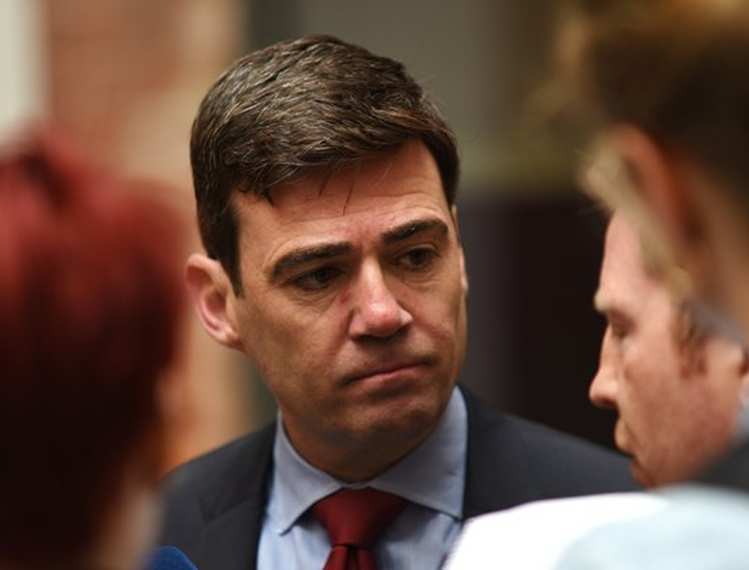Greater Manchester first to be recognised for Living Wage City-Region plans

GREATER Manchester has become the first city-region to be officially recognised for ambitious new plans to make Greater Manchester a Living Wage City Region, making strides to ensure that employees across all 10 boroughs are paid a real Living Wage and offered good contracts and working conditions.
The city-region’s progress towards this target has been recognised by the Living Wage Foundation, the independent body which champions the real Living Wage based on the cost of living and which accredits employers.
Through close partnership with the Foundation, Greater Manchester has put in place a dedicated taskforce working across different sectors of the economy to engage with employers and encourage them to support our ambitions.
These achievements will be marked today (Monday 15 November) at a Living Wage Foundation event at the People’s History Museum, the first day of Living Wage Week 2021 and a decade on from the launch of the national Real Living Wage Campaign.
Mayor of Greater Manchester Andy Burnham said:
“We’re proud to be the UK’s leading Living Wage City-Region. It’s a testament to the work we’ve done across our 10 boroughs, with businesses, the VCSE sector and other organisations, to show that paying the real Living Wage is not only the right thing for communities – it’s the right thing for employers too.
“Payment of the real Living Wage is changing lives here in Greater Manchester. It’s the difference between just getting by and having a good wage that allows you to do more than simply pay the bills. We’ve made great progress but, with the rising cost of living felt sharply in some of the most disadvantaged places, we know there’s still a long way to go. That’s why we’re going to be out there this week making the compelling case for every single employer in our city-region to pay their workers the real Living Wage.”
Earlier this year, the Mayor established a Living Wage City-Region action group to bring together businesses, unions, local authorities, faith groups and voluntary and charitable organisations to drive forward plans.
A key pillar of this is the Good Employment Charter, launched in 2019. The Charter is a voluntary scheme which raises employment standards across the city-region through a set of criteria including payment of the real living wage. It now has 29 full members and more than 180 supporters, covering 230,000 employees.
The number of accredited Living Wage Employers has increased around threefold since the election of Andy Burnham as Mayor of Greater Manchester in 2017, with almost 384 employers in the city-region – covering around 100,000 employees – granted Living Wage Employer status.
Work is now under way to increase that number to 650 in the next three years, boosting the number of workers in the city-region earning the real Living Wage. The ambition is for all businesses to pay employees the real Living Wage and offer Living Hours contracts by 2030.
Currently, around 194,000 jobs in Greater Manchester – roughly 19% of all jobs in the city-region – pay less than the real Living Wage. This figure is the lowest since wage level records began.
Katherine Chapman, Director of the Living Wage Foundation, said:
“With living costs rising so rapidly, today’s new Living Wage rates will provide thousands of workers and their families in Greater Manchester with security and stability. Alongside this, the steps Greater Manchester has taken to become a Living Wage City Region will help to lift many more out of working poverty and on to a wage that meets their everyday needs.
“We know that the Living Wage is good for businesses as well as workers, and as we rebuild our economy post pandemic, the real Living Wage will be crucial to rebuild on strong foundations.”
Chair of the Greater Manchester Local Enterprise Partnership (GM LEP), Lou Cordwell, said:
“Greater Manchester is proud to support the Living Wage movement and to be recognised as a leader in becoming the UK’s first Living Wage City-Region. This continues our proud history as a focal point for movements that bring about social change.
“As well as improving the lives of thousands of people, paying a real Living Wage will benefit employers and boost our economy. Research shows it results in increased productivity and improved morale, with Living Wage employers finding it easier to attract and retain staff.
“We’re proud of the progress we’ve already made, but there’s still work to be done. Driving good employment for everyone is one of the key pillars of our Economic Vision for Greater Manchester. We want to invite more employers to join us on the journey and reap the rewards of a more engaged and productive workforce.”











Responses